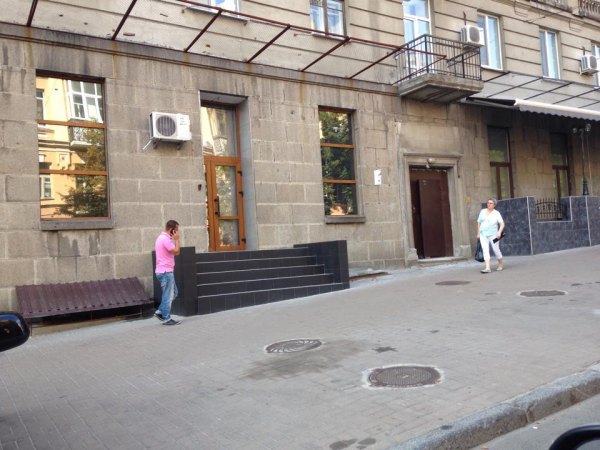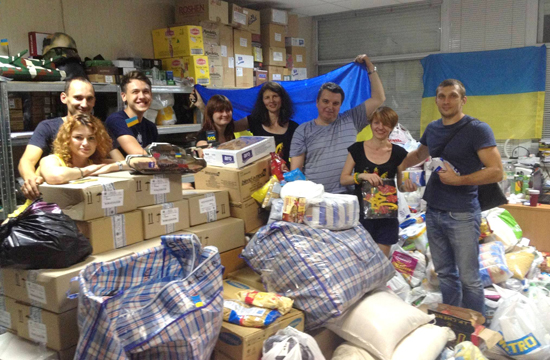Ukraine’s gross domestic product has to double, up to 16 thousand dollars per capita, the rating of the country’s business friendliness hat to go up from the 112th to the 20th place in the world, and the financing of the army should grow fivefold. These are only some of the goals President Petro Poroshenko posed to the Ukrainian government by 2020. To do this, the Presidents plans to replace two-thirds of the government and give 65% of government powers to local government.
Strategy-2020 includes social and humanitarian aspect: Poroshenko wants Ukrainians to live longer, trust their neighbors, be proud of Ukraine, and for the youth to know two and more foreign languages. To execute this, Ukraine will have to make all possible efforts, Petro Poroshenko admitted at his press conference.
“The preparation and execution of reforms have to be done in close cooperation with exerts and civil society. It is naïve to think that to do this, a law, a President’s order or government orders would be enough,” Poroshenko emphasized.
Expert opinions on Strategy-2020 is varied. As such, strategic consulting corporation Gardarika expert Kostyantyn Matveiyenko emphasized that there are more electoral technologies than real intentions in the strategy.
“The strategy’s theses were published before the elections. Meanwhile Poroshenko has no institutional powers to execute them, the government has such powers,” Matviyenko explains. “These two thesis conclude that nobody is going to execute the theses, that it is just an advertising campaign on the eve of the elections. As such, Poroshenko decreased his status from head of state to one of the participants of the parliamentary race.”
Political expert Olexiy Holobutsky also criticized the document.
“I am already tired of reading strategies. The Ukrainians, in particular, the state government, are great at planning, they talk big, even in English nowadays. We have everything except for the reforms themselves. The only thing necessary for them is political will. Even if the plans are not perfect, actions will yield results. I hope the gigantic pressure on part of the West, which is also tired of the empty promises on part of Ukrainian leaders, will work this time, and the reforms will take place,” the political expert hopes.
Experts: all resources should be involved in economic reforms, and the judiciary reform should have already begun
Chairman of the Board of the Center for Political and Legislative Reform Ihor Koliushko
sees signs that the current government will be unable or unwilling to execute some of the stated intentions.
“As to trust towards the court, the intention is good. It is unclear whether it will be executed. The simples step for this, the approval of the law on the court system and judge status, has not been made yet. It is possible to replace 70% of the people in power. However, where can new professionals be found when human resources are in deficit? We have to replace not only the people, but the system as well. Because the new ones will become the same as their predecessors,” the expert predicts.
On their part, economists consider the President’s strategy with moderate optimism. International Center for Perspective Studies expert Oleksandr Zholud thinks that the goals set for economic development are correct in general, however the numbers are somewhat too optimistic.
“The investments this year are negative, we will see what happens next, whether they will increase by 40 billion USD. Some things mentioned in the strategy do not depend on Ukraine. For example, the provision of resource purchase of no more than 30% from a single source, if Ukraine can get two-thirds of imported gas only in Russia, and to alter the situation, we need more powerful gas pipelines for reversal or LNG terminals,” Zholud explains.
The state strategy includes life expectancy, language proficiency and Olympic achievements for the first time
Strategy-2020 published by Petro Poroshenko is ambitious, what is more, numerous goals for the development of the state are mentioned in it for the first time, notes Viktor Maziarchuk, expert of Open Dialogue foundation and member of the Reanimation Reform Package initiative. Meanwhile, some theses are barely realistic, some can only be executed under full mobilization of all branches of the government and society, Viktor Maziarchuk told Radio Liberty.
“It is good that we have a middle-term state strategy. The President wants to become part of the top-20, especially for business. However, now we are far from being in the lead: number 112,” Maziarchuk concludes. “For this, the President, the Parliament and the government will have to work as a single team for the result itself. It is very good that for the first time the strategy poses goals regarding life expectancy, language proficiency, Olympic victories. We are talking about increasing these measures on account of life level. The previous government was not interested in such things.”
Viktor Maziarchuk approved of other Strategy-2020 initiative, in particular, the transfer of 65% of government powers to the local government. However, he is doubtful that it is possible to decrease state debt and increase our credit rating, as the credit rating is prone to fall under conditions of local armed conflicts.
As of today, Poroshenko has personally spoken about and published only the end goals of the development strategy by 2020. Society has not yet seen mechanisms of achieving them, experts assume that they have not been fully developed yet. Poroshenko’s predecessors at the post of President had their own strategies, their economic part was similar. However, the majority of the points during Viktor Yushchenko and Viktor Yanukovych’s presidencies were not executed.




